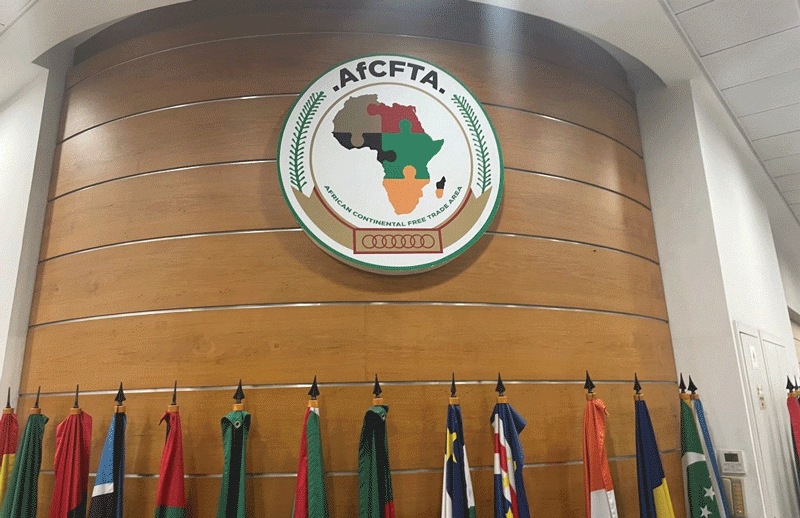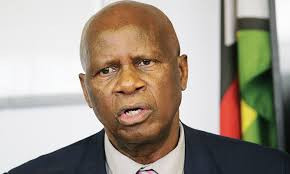
IN the past few months, there has been a strong push by African financial services sector leaders for a review of the global financial architecture which by and large is not delivering the scale of resources needed to allow Africa to achieve its growth and development priorities.
At a time the African financial services is battling some challenges buoyed by the global financial architecture, for example, unstable debt level, lack of access to concessionary debt and minimal climate financing, the insurance industry is battling other myriad challenges on an African scale.
But across the continent, the business of insurance has remained a vital component of the global economy.
According to the World Bank, global economic growth was projected at around 6% in 2021 and in 2024, the projection is around 2,4% speaking to uncertainties in the business of insurance in global economic growth.
By its very nature,Insurance is capable of driving economies by providing significant social benefits, such as compensation for injuries at work and rebuilding property after catastrophes, as well as reducing the impact of economic threats, giving people and businesses a greater chance to prosper.
Importance of insurance as key driver of global economic growth was at the centre of the ongoing Organisation for Eastern and Southern Africa Insurers (OESAI) 46th Conference and Annual General Meeting in Victoria Falls, Zimbabwe on Monday.
The motive was to navigate around how the sector can thrive in the global challenges and uncertainties.
This is because, notwithstanding its prospects for expansion, the worldwide insurance industry confronts noteworthy obstacles with the ones including cyber security risks, regulatory complexity, and the requirement for digital upskilling.
- Zim has 2nd highest rising food prices: WB
- 'Market discipline difficult to maintain'
- Govt policy unpredictability destroying formal economy
- UZ fiasco shows govt is aloof
Keep Reading
Making her contributions during a panel discussion, a partner at Bowmans, Christine Rodrigues, said regulation will continue to be a very important thing in terms of the insurance sector.
She said pretty soon, the insurance industry will be as strictly regulated as underlying insurance.
“Now, what’s important is what the Covid-19 business interruption plan is actually illustrating to the market. Where 50% of the entire industry will be shut down in terms of insurance. And also the impact on each of those sectors. So brokers, insurers, and regulators all need to be attentive,” Rodrigues said.
“So, with brokers, they realise the importance of giving correct advice, the importance of having the proper, and having the competency levels.
“From an insurer perspective, the realisation was the importance of having very solid policy rules so that customers can actually understand what it is that they are observing. And then from an insurer perspective, what was recognised was the importance of having the insurance rules that go against the underlying insurance policies. But for me, the most important thing from all this regulation is the rights of the consumer. The rights of people actually understanding what their rights are and their protections.”
Rodrigues said part of that was people understanding that the retail customer now has as much power as a local customer.
First Mutual Holdings group chief actuary Livingstone Magorimbo said some of the global tensions were pointing towards the insurance industry to go back to basics and revisit its business models.
“We are in the business of managing risk, right? There is a framework that we need to follow in terms of assessing our risks, managing those risks, pricing them, putting in place the right mitigations, and I think what Covid-19 and some of these pandemics have done is to force us as an industry to relook at our business models and ensure that we do business as an insurance industry in the manner that we are supposed to,” Magorimbo said.
“The second aspect that has sort of been highlighted with Covid-19 pandemic relates to technology. I’m sure you would agree with that over the years, the insurance industry across Africa has done very little in terms of investing in technology.
“When Covid-19 happened, we started running around the insurance industry in terms of how do we speak to our customers, how do we engage our customers, and yet if you really look at it, the insurance industry is at the forefront of possibly being in a better position to foresee some of these pandemics and some of these risks coming through. So that’s an area that the insurance industry will now deal with in terms of making significant and reasonable investment in technology.”
Magorimbo added that the industry needed to start looking at its insurance businesses as technology companies that are selling insurance, not insurance companies that take part from there without a full integration of those technologies.
AfrexInsure chief executive Jonas Mushosho who relayed the unique challenges that the insurance industry was facing, said it was key for Africa to start by reducing poverty, but it will require several years of sustained economic development.
“But we know that economic development is often disrupted by a number of factors, like climate change, whether it’s floods, whether it’s drought, whether it’s pandemics or global recessions. These disrupt the sustaining of economic development. What you would require, is a very strong insurance sector that provides a buffer in times of post-economic downturns,” Mushosho said.
“Unfortunately, the insurance sector in Africa is unable to provide that buffer. This is due to a number of issues. One of them is that we lack capacity on the continent. When we want to insure the big risks, we don’t have entities on the continent that can keep premiums on the continent.
“And we know that insurance plays a very significant role in capital formation, in the sense that you collect premiums, invest them, before you pay out any related claims. So when you do not have the capacity, it means that the premiums that are raised on the African continent will be shipped abroad, they will be invested in Europe in America.”
Mushosho, however, said the bad thing was when Africa now needs capital to support the local businesses, the industry then go overseas to borrow.
In some sense, Mushosho said, the industry would be borrowing the premiums that were raised on the African continent.
“And when they bring that capital back to us, they say Africa is very risky, and they put a risk premium on the money they took from us. Therefore, the cost of capital for Africa becomes very high, and our own goods become uncompetitive. So it is important that we should work to try to retain premiums on the continent.”
In the midst of all this, Sanlam Allianz brand and corporate affairs executive Gaffer Hassam said it was time the industry start engaging with its clients in terms of its risk models and one of the simplest and lazy way of dealing with it is to increase its premiums
“But if we are not careful, we price ourselves out of the market because it becomes unaffordable for our clients that we're trying to serve. So quite critically for me as an insurance industry, collaboration is significant. Not only collaborating with ourselves like what we are doing today, engaging to find a solution, but also collaborating with other industries,” Hassam said
The panel agreed that this was a crucial issue and collaboration of the industry in addressing the challenges the industry is facing can solidify the industries’ position as a driver of economic growth.











